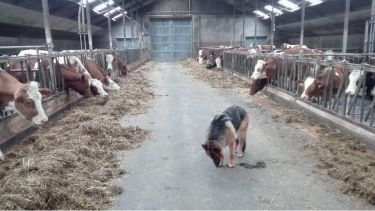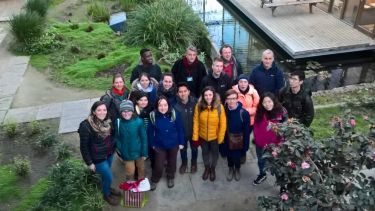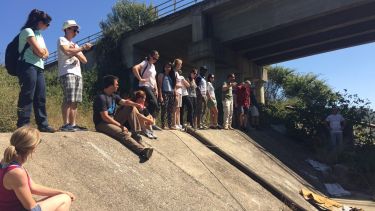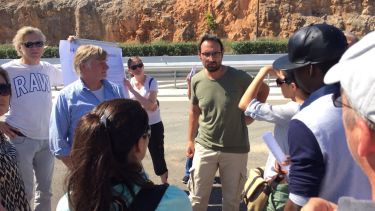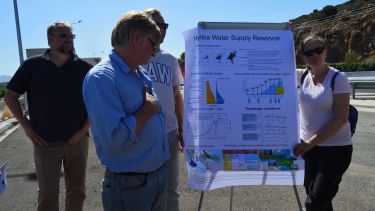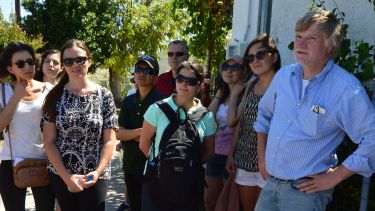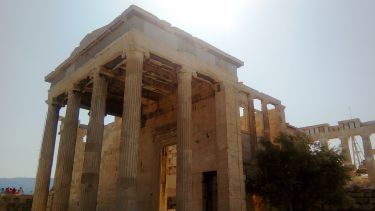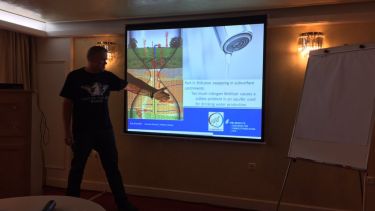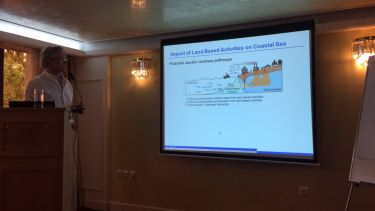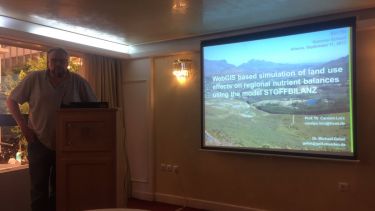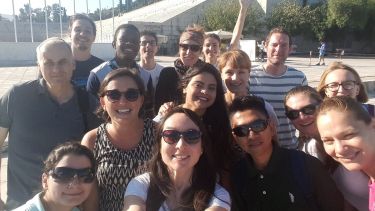Event reports
Training events and scientific meetings that have been presented by the INSPIRATION network.
Click on the title of an event to read a summary of the content that was delivered and other relevant information.
Workshops
- Project and time management skills, strategies for effective knowledge transfer and science dissemination
-
United Kingdom, March 2017
The first INSPIRATION network training workshop was hosted in Manchester, UK, 20-22 March 2017 on the theme of Project management - academic and industry focus, strategies for effective knowledge transfer and science dissemination. The workshop was attended by fellows and members of their supervisory teams.
Over the two days the participants were introduced to the principles and application of effective project management for research and commercial activities.
They also learnt about building personal and professional resilience as a researcher and developing effective communication skills. This included group-based exercises in the organisation of an international research conference and presentation of their proposals to a mixed audience of scientists, engineers and non-specialists, as an exercise in persuasive communication, understanding stakeholder perspectives and translating science into knowledge-based outputs.
- Characterisation of soil and groundwater microbiology : sampling, analytical methods, interpretation and applications for agriculture management
-
United Kingdom, December 2017
This workshop explored the principles and application of various techniques available for molecular microbiological analysis of microbial communities and their interactions in soil and groundwater.
The focus was on understanding the fundamental basis for each technique and its potential value in different contexts, with emphasis on interpreting the microbial dynamics in agricultural systems.
The course covered theoretical aspects, sample collection/processing and advanced data presentation/interpretation methods using laboratory demonstrations and state-of-the-art open source software.
- Innovative methods for solute flux measurement in the subsurface environment, with practical field training
-
Belgium, March 2018
This workshop, hosted at VITO in Belgium from 7-9 March 2018, introduced the principles and applications of innovative approaches available for sampling groundwater using solute flux-based concepts. It was attended by many fellows and a wide range of external participants from different sectors of the environmental engineering community.
Over the three days the participants gained a deeper understanding of the theory which underpins this approach and the different methods available, via a series of in-class lectures and exercises, supported by hands-on field training with different technologies to demonstrate specific applications.
The technical scope covered good practice and potential problems in current groundwater sampling, with a comparison of advantages and improvements provided by passive sampling techniques for the measurement of solute fluxes. The value of tracer-based approaches for monitoring solute transport in the subsurface was also discussed.
Practical field training in the different methods and technologies described was hosted at one of the University of Liege's research sites, where participants gained experience in using conventional and passive groundwater sampling devices. Back in class, they worked on a case study in small groups to interpret results obtained by these sampling approaches and gave presentations on their findings in an open discussion.
The workshop was presented by researchers from Inspiration partners VITO, Geolys, and the University of Liege, with guest speakers from iFLUX, who are developing applications of these new sampling technologies.
- Short minutes W6: Workshop on Integrating sustainability into agricultural practice
-
13-15 March 2019, Wageningen, the Netherlands
This two-day workshop, hosted at Wageningen University in the Netherlands focused on the possibilities for sustainable management of carbon, nutrients and pesticides in view of their impacts on soil, groundwater, drinking water and surface water quality.
Different perspectives with respect to sustainable management were presented, including assessment methods, management practices and technologies.
Apart from presentations, interactive sessions were included to evaluate management measures in view of their potential for sustainable agriculture. An excursion to a dairy farmer, who presented innovative sustainable farming practices, also added much practical insight.
For some ESRs, the lectures were quite difficult, but the follow up discussions among presenters and audience were seen as important to better understand the point of view of different stakeholders. Group activities were considered very useful to understand the problems and solutions for sustainable agriculture. The assistance that was received to attend the workshop and the organisation and venue for the workshop was considered very good.
The workshop was be presented by technical experts, researchers, practitioners and farming representatives from Wageningen University, NMI and WML (The Netherlands), Teagasc (Ireland), and VITO and YARA (Belgium).
Seasonal schools
- Developing science into practice, including stakeholder involvement
-
United Kingdom, March 2017
The first INSPIRATION network summer school was hosted in Manchester, UK, 20-22 March 2017 on the theme of Developing science into practice, including stakeholder involvement. T
he summer school was combined with the first workshop, focused on project management and effective knowledge transfer (click here).
Using conceptual presentations, group discussion and task-based activities, the participants were introduced to various strategies for effective science dissemination and outreach, and developing science into practice. This included a group-based exercise to develop a technology output from their specific work package.
The fellows had to make presentations in a "Dragon's Den"-style format to their supervisors to explain the technology product, the innovation involved and how they would bring it to market to make it a success. They had to answer questions from the panel on all aspects of their proposed technology, from design concept through to technical development challenges to marketing and stakeholder engagement. It encouraged them to define clear objectives, set realistic goals and consider the importance of effective communication to non-specialist audiences.
- Novel monitoring techniques to assess contaminant sources, natural processes and remediation performance with focus on nutrient and C cycles
-
Greece, September 2017
The second INSPIRATION network summer school on the theme of Novel monitoring techniques to assess contaminant sources, natural processes and remediation performance with focus on nutrient and C cycles, was hosted in Athens, Greece, 11-13 September 2017.
This event was attended by all fellows and external participants, who included researchers and professional environmental engineers from Europe. Over the three days the participants were introduced to the challenges and innovations underpinning the investigation, assessment and management of nutrient and carbon inputs to the natural environment, covering groundwater soils and surface water bodies.
The technical scope covered the application of stable isotope analysis, modelling tools and novel monitoring devices to study sources, behaviour and management of nitrogen and carbon at the river to catchment scale. While the focus was on agricultural contributions of these components, the course also considered the status of natural systems and remediation approaches that can be implemented.
Both laboratory and field-based monitoring techniques were profiled to demonstrate the role of technology innovation in the scientific analysis and interpretation of water quality impacts from agricultural practices.
A field trip to an agricultural catchment north of Athens helped provide the historical and practical context for the summer school, demonstrating potential conflicts between different uses of limited water resources and novel high-resolution, remote sensor monitoring of water quality for sustainable management, developed by an EU-funded project.
The summer school was presented by researchers from the Helmholtz Centre for Environmental Research (Germany), IWW-Beratung GmbH (Germany), Technical University of Darmstadt (Germany) and National Technical University of Athens (Greece), with guest speakers from Hochschule Weihenstephan-Triesdorf - University of Applied Sciences (Germany). And, on a lighter note, everyone had the privilege of exploring the awe-inspiring majesty of the Parthenon and many other historical monuments!










